Frontline report: Ukraine’s drone warriors repel two Russian assault attempts on Vuhledar
Russia tries to seize the moment before US aid arrives, but its old tanks are no match for Ukrainian FPV drones
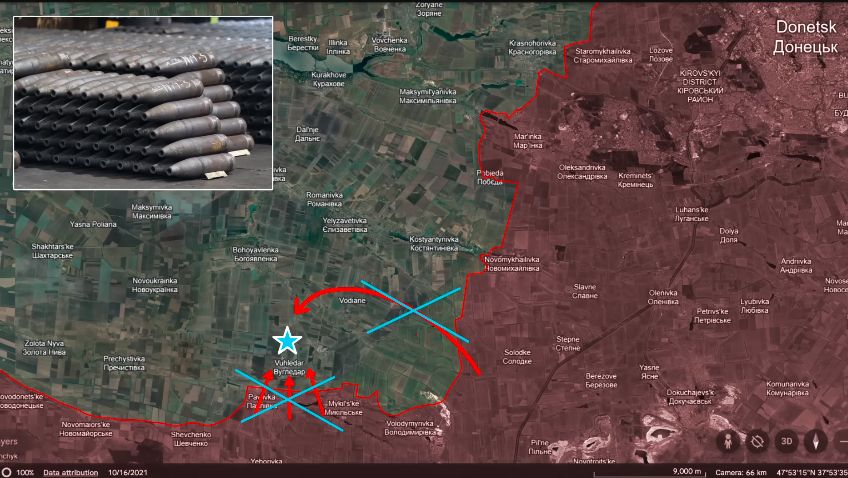

There are a lot of updates from the Kurakhove direction. Here, Russian forces resumed assault operations on Vuhledar, one of the main strong points in this direction that is still being held by Ukrainian forces.
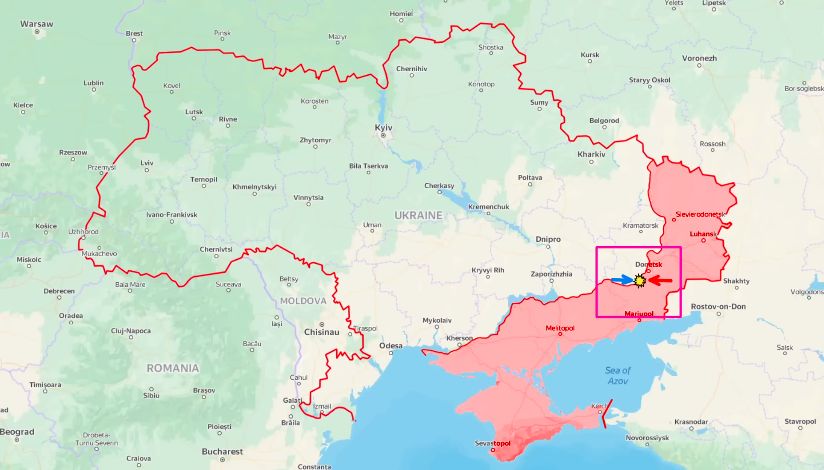
Vuhledar additionally bears an important symbolic significance because Russian forces repeatedly tried to attack Vuhledar from the south over the past two years and suffered catastrophic losses, including a devastating defeat in one of the largest tank battles of the war.
Vuhledar’s key role is based on two main factors. Firstly, Vuhledar is of high operational importance because it is located at a dominating height. If we look at the topographic map, we can see that Vuhledar is situated at a significant elevation over the area further south. However, areas to the east are at a similar elevation, and the Russians have indeed tried to take advantage of this by launching attacks along the hill ridge.
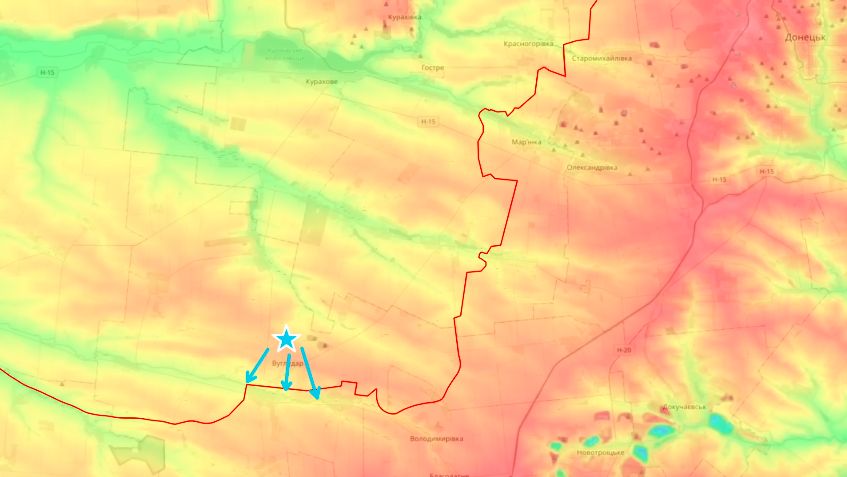
Secondly, from the point of view of logistics, Vuhledar has been a key supply hub from the beginning of the war due to its proximity to two important roads: the 0509 road from Velyka Novosilka to Novotroitske and the 0532 road that goes up from Vuhledar to Marinka. However, because of the current front-line situation, its most significant importance lies in the fact it constitutes a formidable barrier that the Russians have not been able to overcome for months.
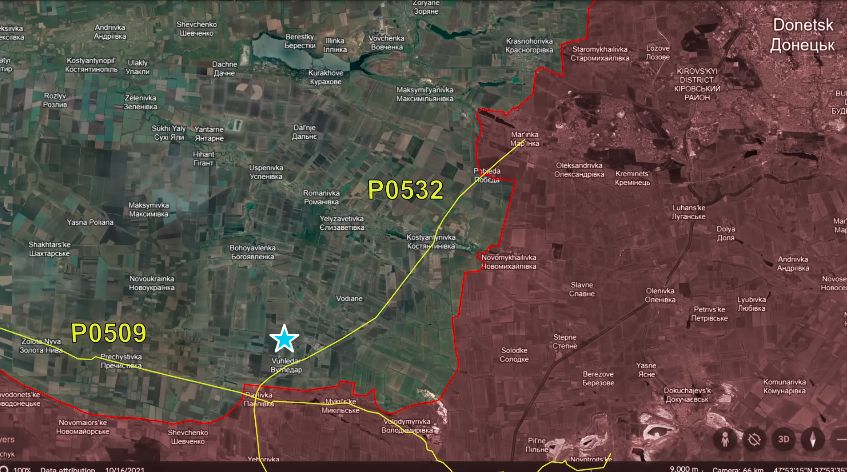
Over the past several days, Russian forces began preparing for assault operations from the south and the east. Russian forces released dramatic videos of extensive artillery preparation on Vuhledar and the Ukrainian strong points around it. As can be seen in the images, the city is now utterly destroyed, although Ukrainian forces still control valuable positions on high buildings.
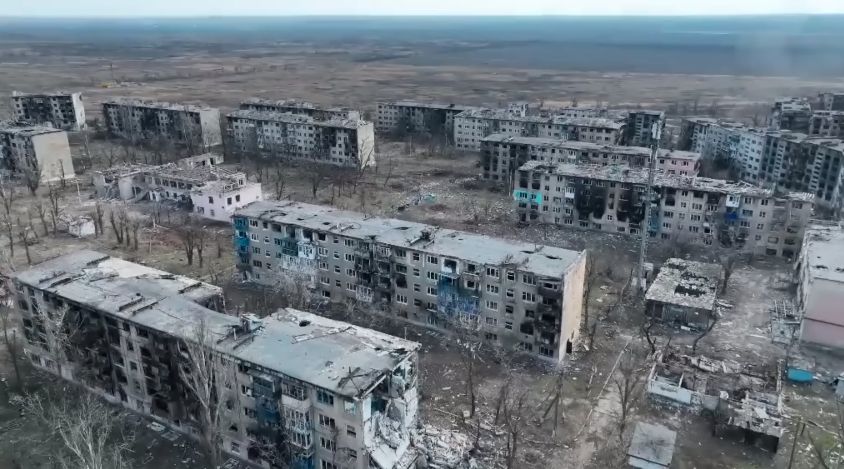
Ukrainian forces responded to the heavy Russian fire by trying to undermine the preparation of Russian forces in Russian-controlled settlements to the south. Geolocated footage shows Ukrainians hitting Russian forces concentrations in the village of Pavlivka, southwest of Vuhledar.
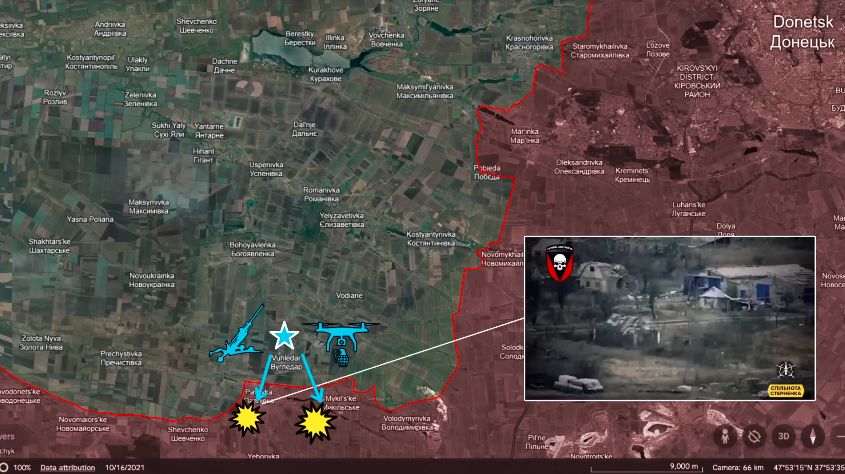
One geolocated video shows how Ukrainians located a position with a hiding Russian machine gun operator, which they subsequently attacked with high accuracy with an FVP kamikaze drone. The drone operators managed to literally enter the house through the front door and detonate the explosive charge.
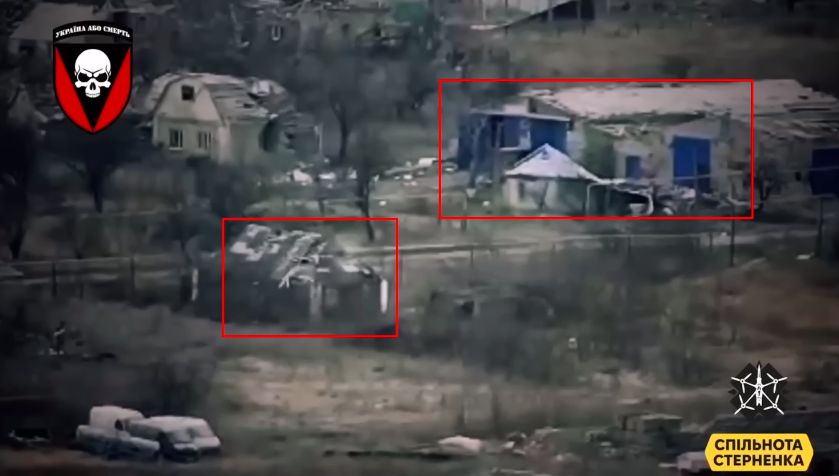
Another video demonstrates how Russian soldiers were seeking shelter in a workshop area right after the first attack. Once they got inside, they suffered consecutive attacks by kamikaze and grenade launcher drones.
Finally, a video released by Ukrainian counter-battery teams shows how Ukrainians hit a Russian D-30 howitzer north of the village of Kyrylivka as a part of broad counterbattery operations. After the first hit damaged the shell, the whole stock of Russian ammunition ended up exploding.
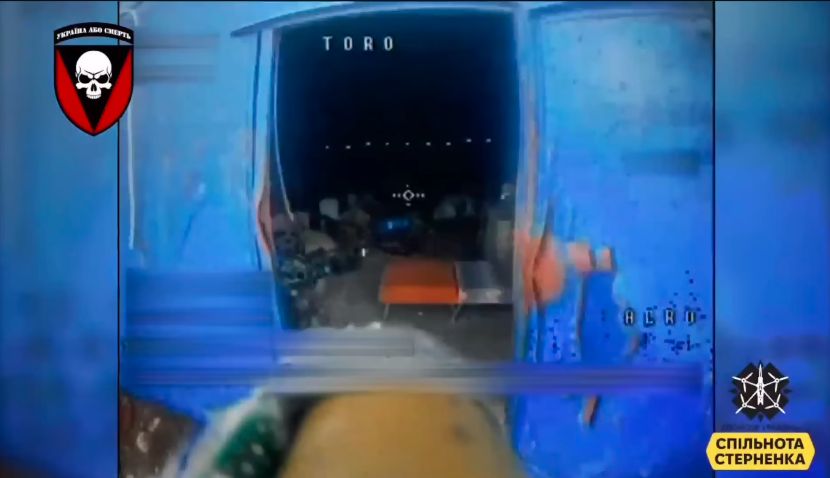
As the surprise frontal attack was unsuccessful, Russian forces applied an encirclement tactic in its next step and tried to envelop the stronghold. This time, apart from the southwestern vector of attack, Russian forces also tried to advance from the Soldeke area.
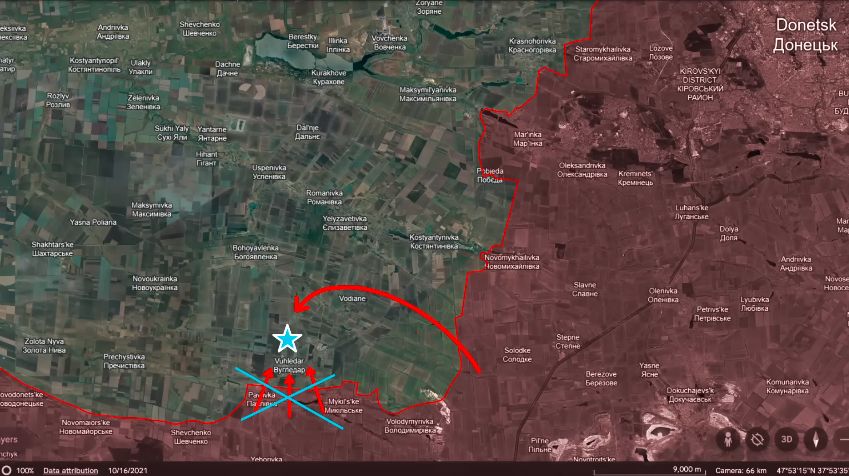
Geolocated footage released by the fighter from the 72nd Mechanized Brigade and 79th Separate Assault Brigade shows a Russian mechanized advance with several armored infantry vehicles, which the Ukrainians managed to disrupt with artillery and drone fire.
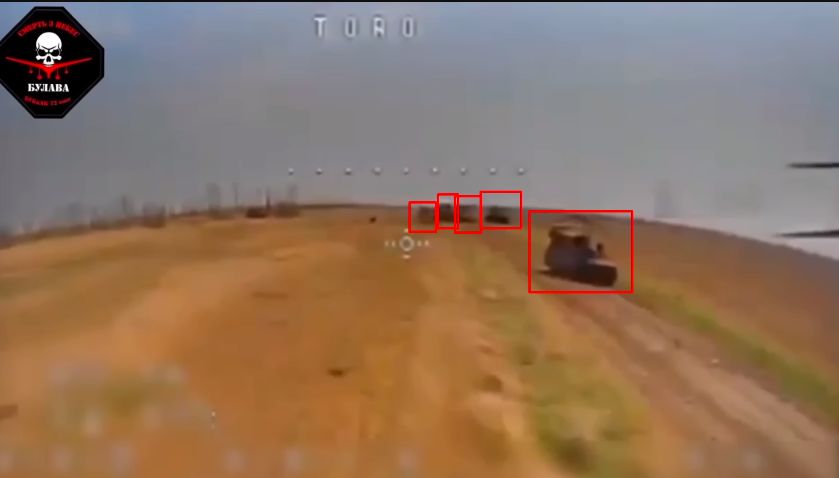
As can be seen from the footage, the Russians initially set out along the tree lines running parallel to a railway track, however, at one point, they are forced to advance right through the open fields with hardly any cover, likely due to the higher density of Ukrainian mines in the area, which inevitably facilitated the work of the Ukrainian defenders.
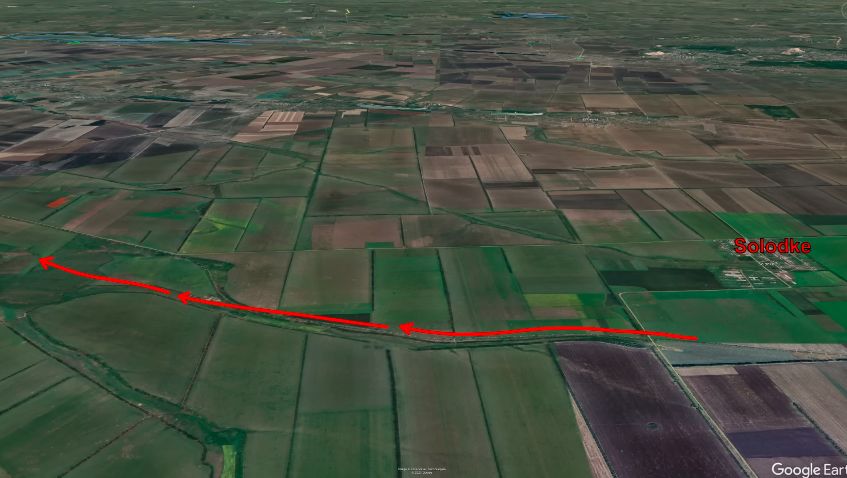
Russian armored vehicles were attacked by a succession of kamikaze drones until they were immobilized. The crew tried to get to the shelter, but they were eliminated by drone-launched grenades. Interestingly, as can be noted in all FPV drone recordings, there is no loss of video signal until the very moment of impact with many, which indicates that relatively old models of Russian tanks and armored vehicles like T-62 tanks are not equipped with electronic warfare equipment.
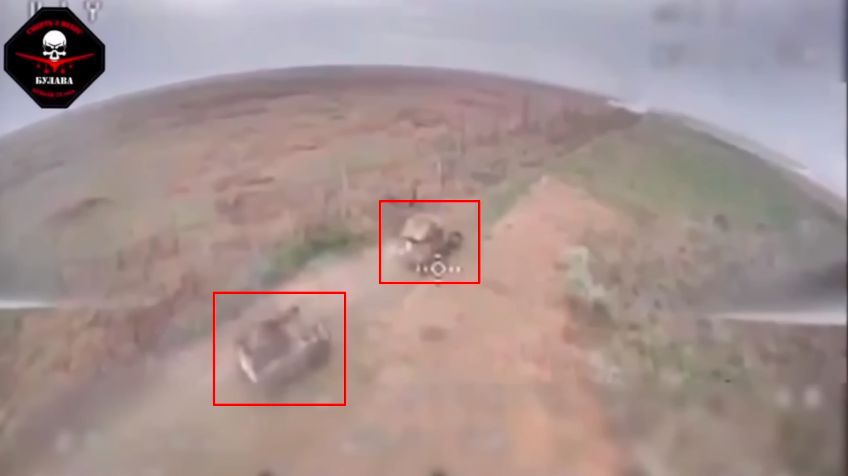
Moreover, several of the Russian vehicles were fitted with basic anti-mine equipment, which is another indicator that the area was heavily mined by the Ukrainian army. However, the images do not show any mine detonations, so it seems like the Russian vehicles and tanks were neutralized by the Ukrainian defenders even before they reached the minefields.
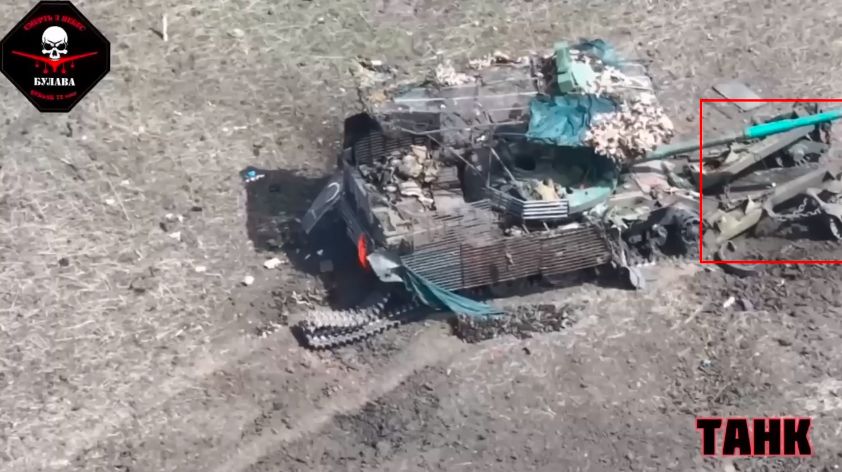
Based on the available images and videos from the combat zone, the estimated number of destroyed equipment and personnel amounts to 2 tanks, 3 armored personnel carriers, 2 light-armored vehicles, and 44 personnel losses, namely, 29 dead and 15 wounded.
Overall, Ukrainian forces continue to hold the line in front of Vuhledar and have recently repelled both infantry assaults from the south as well as mechanized advances from the east. Russian forces, favored by unusually dry spring weather, are trying to increase the pace of their operations with mechanized and infantry assaults before the imminent arrival of the Western military aid, while the Ukrainians are already organizing assistance distribution and will soon attempt to retake the initiative.
In our daily frontline report, we pair up with the military blogger Reporting from Ukraine to keep you informed about what is happening on the battlefield in the Russo-Ukrainian war.
Related:
- Frontline report: Russia suffers record losses in “most disastrous” attack since Vuhledar
- Frontline report: Russian kamikaze tank tactics fail in Vuhledar direction
- Russia loses major Vuhledar tank battle to AFU’s ambushes – NYT
You could close this page. Or you could join our community and help us produce more materials like this.
We keep our reporting open and accessible to everyone because we believe in the power of free information. This is why our small, cost-effective team depends on the support of readers like you to bring deliver timely news, quality analysis, and on-the-ground reports about Russia's war against Ukraine and Ukraine's struggle to build a democratic society.
A little bit goes a long way: for as little as the cost of one cup of coffee a month, you can help build bridges between Ukraine and the rest of the world, plus become a co-creator and vote for topics we should cover next. Become a patron or see other ways to support.



